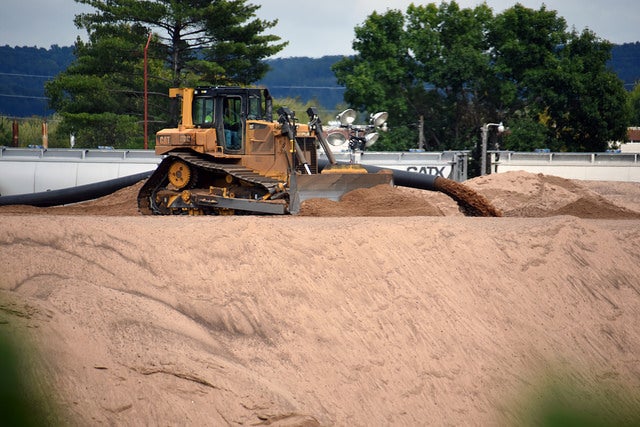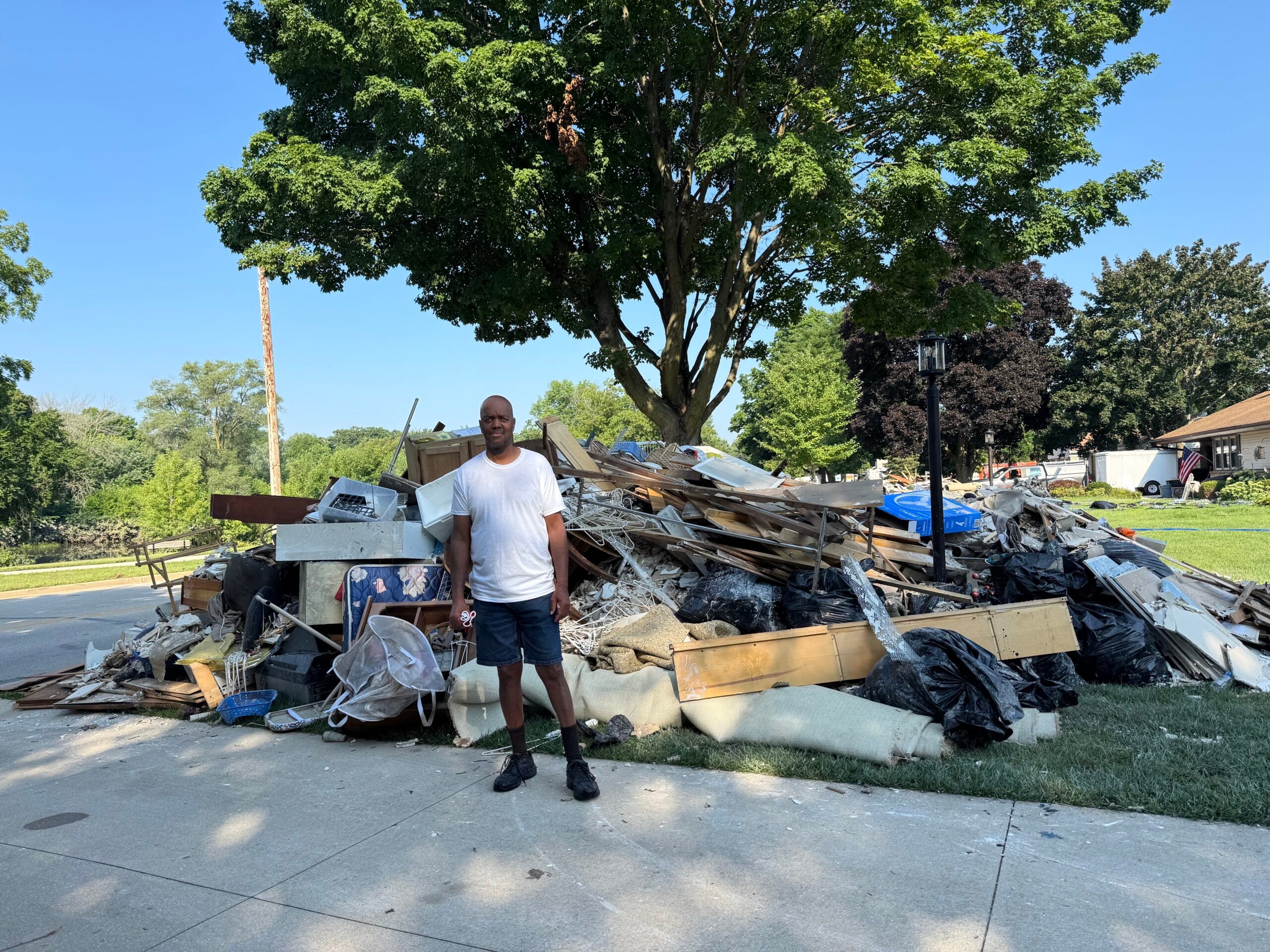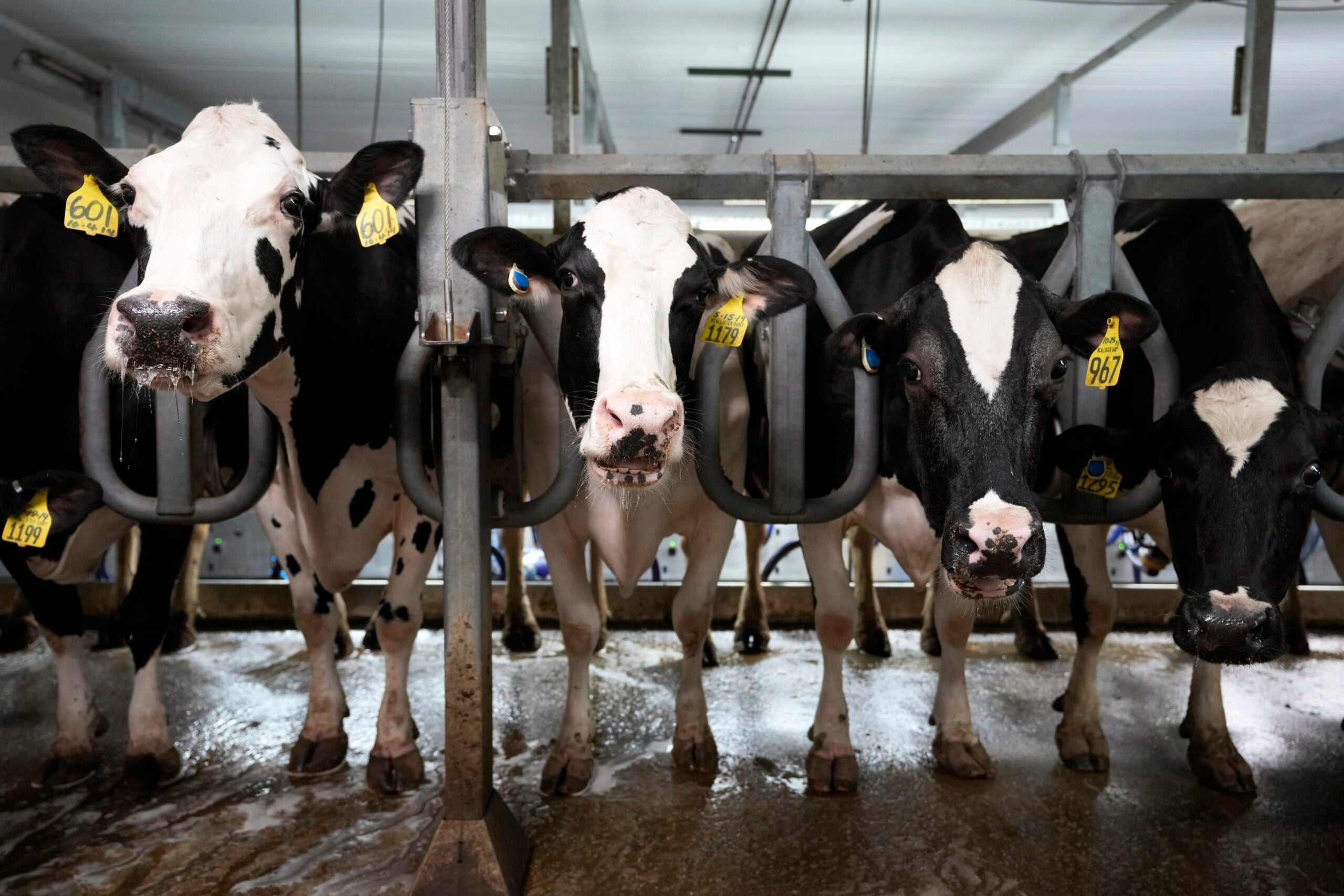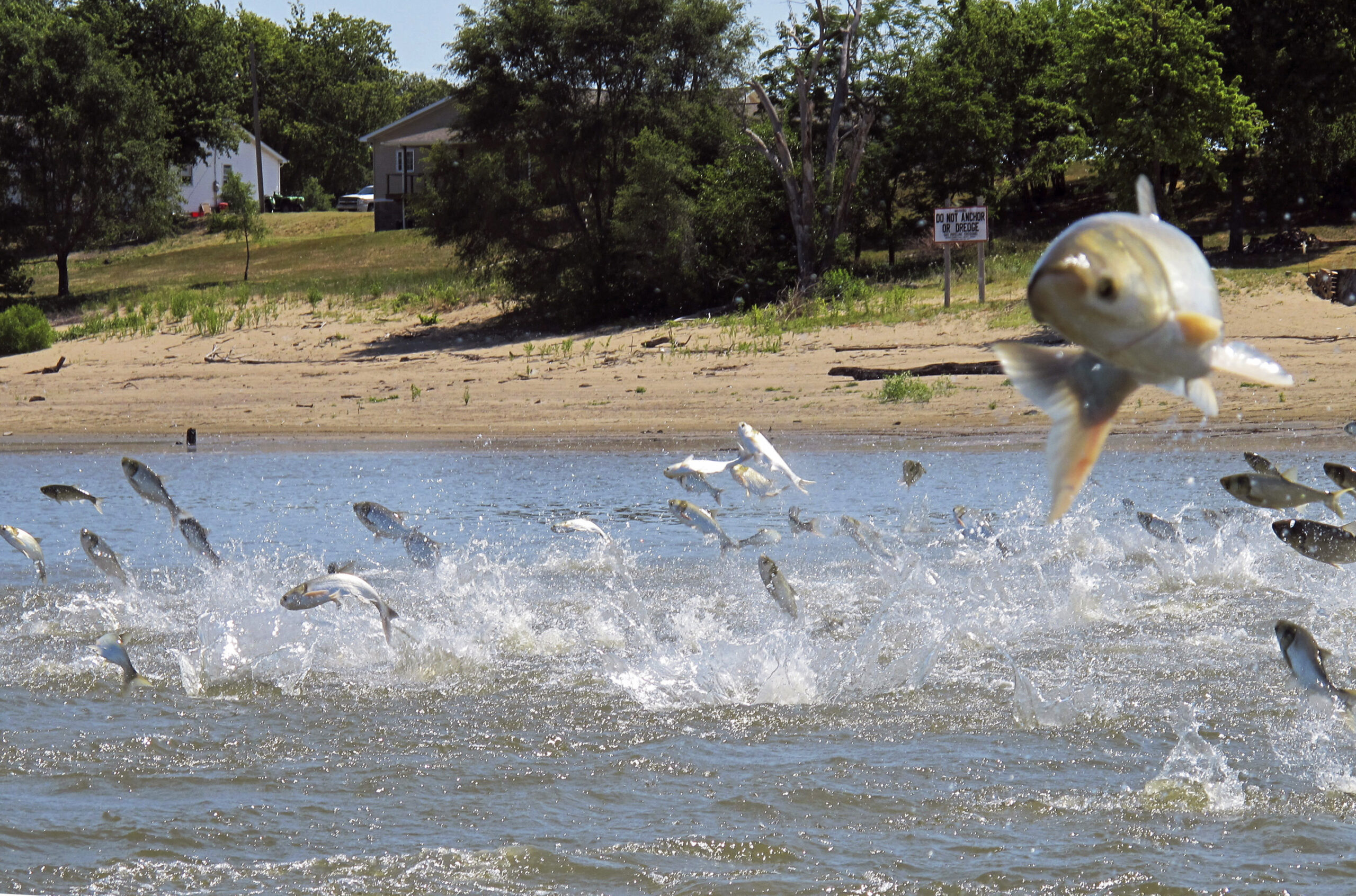Residents of Buffalo County are raising concerns about plans to convert local farmland to storage for sand dredged from the Mississippi River.
Every year, the Army Corps of Engineers dredges 270,000 cubic yards of sand from a section of the Mississippi River downstream of Lake Pepin. The dredging keeps the navigation channel open.
Sites for storing this dredged sand are almost full, so the Corps is proposing five new locations in Wisconsin and Minnesota to dump the material.
News with a little more humanity
WPR’s “Wisconsin Today” newsletter keeps you connected to the state you love without feeling overwhelmed. No paywall. No agenda. No corporate filter.
But many residents of Buffalo County and Wabasha County in Minnesota are up in arms over the proposal, which would convert around 489 acres of farmland to sand storage.
“There are a number of questions that (residents) have that they don’t feel have been adequately answered,” said Douglas Kane, chair of the Buffalo County Board of Supervisors.
Kane said residents are also concerned about the increased traffic caused by selecting locations away from the river.
But Craig Evans, chief of Plan Formulation for the St. Paul, Minnesota, district of the Corps, said the agency doesn’t have a lot of other options.
“We cannot place material in wetlands. And most of the area we’re talking about downstream of Lake Pepin, within the river valley itself, it’s mostly all wetland and its part of the national wildlife refuge,” Evans said. “When you start getting out of the river, this area is bluff country, it rises very steeply and so you either have very steep land or flatland. The flatland has either got buildings on it or its farmland.”
Evans said the Corps has to select the lowest cost sites that don’t have a negative environmental impact, regardless of residents’ feelings about the location.
But he said the Corps welcomes public input in helping select the new sites.
“We know we don’t have all the information, and we want the public to be able to tell us what we might have misunderstood or might have done wrong, if there are better places that would be less expensive for us to use or would have fewer impacts and not be any more expensive to use,” Evans said.
The Corps is hosting a public information meeting Tuesday, June 6, in Nelson and Thursday, June 15, in Wabasha.
Wisconsin Public Radio, © Copyright 2025, Board of Regents of the University of Wisconsin System and Wisconsin Educational Communications Board.







